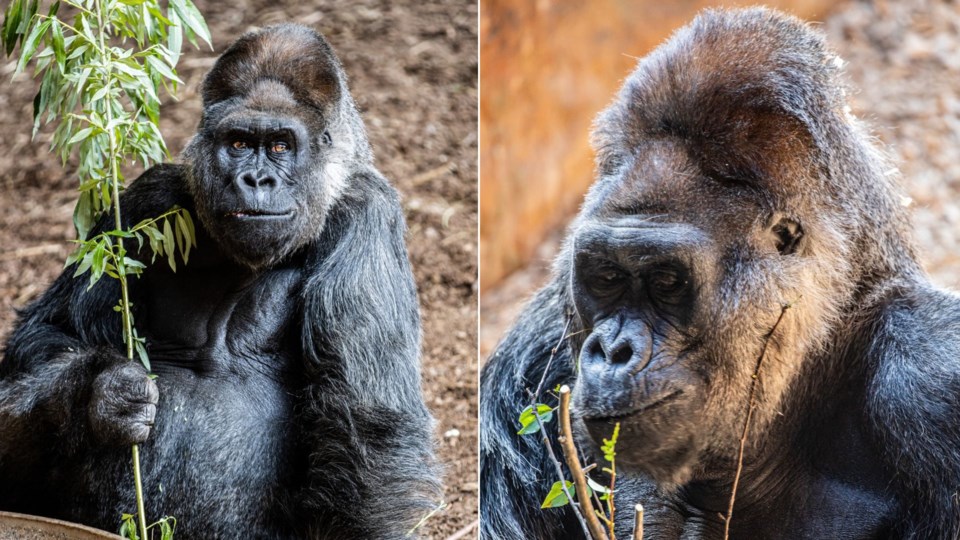Charles, the Toronto Zoo’s oldest Western lowland gorilla, is experiencing health issues, leaving his many admirers fearing the worst.
On Sunday, the zoo released a statement claiming Charles “may be experiencing significant heart issues.”
He has reportedly shown evidence of “some concerning health symptoms” since Friday.
Charles has been placed in an area away from public view.
The 52-year-old gorilla has been a fixture of the Toronto Zoo since its opening day in 1974.
He is older than most males of his species who, according to the zoo, often live between 30 and 40 years in the wild.
“At 52, Charles is geriatric, and his advanced age is a true testament to the outstanding care he has received at your Toronto Zoo since his arrival more than 50 years ago,” the Toronto Zoo wrote on social media.
Zoo officials said they developed a treatment plan and will continue to monitor Charles’ condition.
His caretakers are doing “everything possible to keep Charles comfortable,” the company said.
On any given day, admirers of Charles and his troop line up outside the zoo’s gorilla enclosure to watch them eat, play and interact. To many, Charles is synonymous with the Toronto Zoo — and news of his condition has triggered a wave of concern among his fans.
“This is distressing news for me. Charles is the highlight of our zoo experience for the last 40 years that we’ve been going,” wrote one visitor to the Toronto Zoo on Facebook. “We are feeling blessed and so lucky to see him and his 2 sons last Wednesday.”
“While I'm sure the Zoo has been preparing for this, anyone who has had a cherished animal in their life knows you're never really ready,” commented another. “We know you will do whatever you can to keep dear Charles free of pain.”
Charles is the oldest gorilla currently in captivity in North America.
The world’s oldest known Western lowland gorilla to ever live in captivity is Fatou, who resides at the Berlin Zoo. She celebrated her 67th birthday in April.
The Western lowland gorilla is a critically endangered species. The exact number of Western lowland gorillas in the wild is not known because they inhabit some of the most dense and remote rainforests in Africa.
The World Wildlife Fund said the species’ numbers have declined by more than 60 per cent over the last 20 to 25 years due to poaching and disease.
